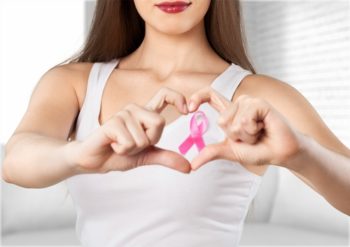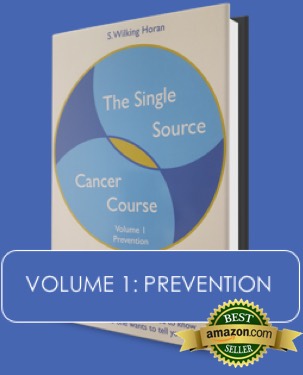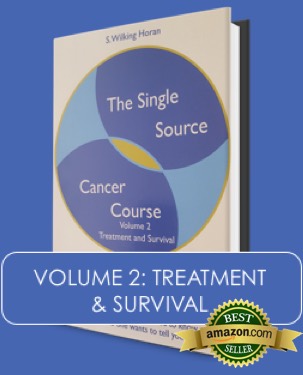 THE CARDIO SIDE OF CANCER TREATMENTS
THE CARDIO SIDE OF CANCER TREATMENTS
It’s another WELLNESS WEDNESDAY everyone and the last day in February. So, of course, that means it’s the last day of AMERICAN HEART HEALTH MONTH as well.
Last week we discussed heart health and the fact that heart disease is the number one health risk for women today. Now, when we say “heart disease,” or “cardiovascular disease,” we’re referring to coronary and congenital heart disease, heart attack and congestive heart failure.
These conditions are more lethal than breast, uterine and ovarian cancer put together. While one in thirteen women will die of breast cancer, one in every three will die of heart or cardiovascular disease.
Moreover, ninety-percent of us have at least one risk factor for heart disease. And, as we age, enter menopause and experience a decrease in estrogen, our risk for heart disease increases.
But, there’s one risk factor that we don’t discuss enough – and that’s the connection between a woman’s treatment for breast cancer and heart disease. For while cancer and heart disease have little in common in the way each affects the body, they are connected when it comes to breast cancer treatment.
In fact, breast cancer survivors, especially those over the age of 65, are more likely to die from cardiovascular disease than breast cancer.
Like many of you, I’m a breast cancer survivor. And, honestly, when I was being treated for my cancer, I don’t remember being warned about the possible side effects of my treatment and how they could harm my heart.
So, let’s discuss the most common treatments for breast cancer and the ways in which they can harm our hearts.
CHEMOTHERAPY
Some chemotherapy drugs are strongly linked to cardiotoxicity, which is literally a poisoning of the heart muscle. Drugs such as anthracyclines and antimetabolites can inhibit the heart’s ability to pump blood and can result in an insufficient blood supply to the heart. They can produce an irregular heartbeat and cause inflammation of the pericardium, which is the protective sac around the heart.
A cumulative exposure to these drugs may weaken the left ventricle of the heart, cause chest pain, spasms and poor circulation in the extremities.
In addition to breast cancer, patients receiving chemotherapy for uterine, ovarian and lung cancer as well as leukemia and lymphoma appear to be at the greatest risk for developing heart disease. And, while the damage may be seen immediately, it also can take years before it develops.
RADIATION
Once again, patients receiving radiation for lymphoma and breast, lung and esophageal cancer appear to have the greatest risk for developing heart disease as a direct result of their treatment.
Radiation also can damage the heart tissue and the protective pericardium. It can negatively affect valve function, cause heart rhythm irregularity and hardening of the arteries, and lead to coronary artery disease or blockages.
All of these conditions can increase a patient’s risk for a heart attack and also can complicate surgery should it be needed.
HORMONE THERAPY
This treatment adjusts different hormone levels in the body in order to inhibit cancer growth. While the therapy is quite effective in fighting cancer cells, it also may increase one’s risk for blood clots and heart attack.
Of course, different cancers can spread throughout the body and travel to the heart. But, cancer of the heart is rare and this particular risk is quite low.
The question now is: HOW DO WE PROTECT OURSELVES?
First and foremost, before beginning any treatment for cancer, have an honest and open discussion about your planned therapies with your oncologist or primary care physician.
Ask your questions, voice your fears and express your concerns. Inquire about the side effects and the risks for developing heart disease from those effects. AND, make sure you don’t move forward until you understand and are satisfied with every answer.
Then, of course, be proactive and take the specific action outlined by the American Heart Association to guard against heart disease, which includes:
1) Exercising regularly and being physically active.
2) Eating a healthy diet low in red meats and high in lean protein, fruits and vegetables.
3) Achieving and maintaining a healthy body weight.
4) Avoiding the use of tobacco in any form.
5) Monitoring your blood pressure, cholesterol and blood sugar levels.
In addition to all this valuable information and these heart-healthy tips, we also have GOOD NEWS about a relatively new field of medicine called Cardio-Oncology. This specialty, also known as Onco-Cardiology, addresses both heart disease and the cancer treatments that may increase its risk. Fortunately, more and more hospitals and medical centers are including access to these specialists for patients in existing cancer treatment programs.
We are never just sitting ducks. We always have the power to determine our own course of action and treatment throughout any illness. We simply need to know the facts, speak up and make ourselves heard. As I always say, “Don’t be Reactive. Be Proactive!”
On that note, I want to thank you all for joining me once again. Until next time, Be Heart Smart and Cancer Savvy, stay in GOOD HEALTH and . . .
TAKE THE COURSE AND TAKE CHARGE!



Great information Susan! So important to make informed choices. Thank you for bringing this info to light.